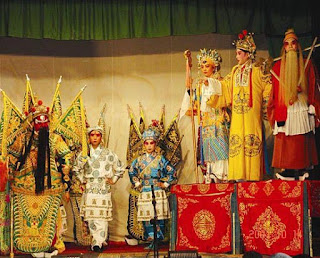Chongqing is a renowned cultural city with a long history. Far more than 20,000
years ago, in the Paleolithic Age, human activity began on this land. Until the
Neolithic Age, there were primitive villages inhabited by eight nationalities,
such as the Yi, Pu and Ju people. These early Chongqing residents created the
most ancient history and civilization of Chongqing.
During the period of the Xia, Shang and Zhou Dynasties (about 3,000-4,000
years ago), the slave-owning tribal alliances generally called the "Ba" nation
had strongly developed widely in the core areas of Chongqing. References to
them have been found in ancient Chinese characters carved on tortoise shells
or animal bones.The name of Chongqing, originally called Ba, has been changed
many times in history.
In the 5th year of the Emperor Shenjing of the Zhou Dynasty (316 BC), Qin
overthrew the original Ba nation and set up a new administration, which retained
the Ba name. In the 26th year of the first emperor of the Qin Dynasty (221 BC),
the country was subdivided into 36 counties, and Ba County, one of the 36
counties, was established. In the Han Dynasty, Ba County was called Jiangzhou.
And in Wei, Jin and Southern & Northern Dynasties, it was renamed as Jingzhou, Yizhou, Bazhou and Chuzhou.
In the 1st year of the Emperor Wendi of the Sui Dynasty (581), since the city was
surrounded by Yushui (old name of the Jialing River), its name was changed
from Chuzhou to Yuzhou. That's why the Chinese sometimes refer to Chongqing
as "Yu".
With the Song Dynasty, the prefecture (Yuzhou) got the new name of Gongzhou.
In the 16th year of the Emperor Xiaozong (Chunxi) of the Song Dynasty (1,189),
Zhao Chun became Prince Gong, and administered the prefecture, later
succeeding to the throne as Emperor Guangzong of the Southern Song Dynasty.
To celebrate his double fortune, the emperor changed Gongzhou to Chongqing
Fu ("prefecture of double celebration"). So far Chongqing has kept the name
for over 800 years.
From the Qin Dynasty on, Chongqing has been organized into different
administrative bodies, such as a county, a state, a city, and a province.
After the Xinhai Revolution in 1921, Chongqing became a commercial
port supervision office. In 1929, Chongqing
was established as a city. On May 5, 1935, ordered by the Kuomintang (KMT)
government, Chongqing became a municipality directly under the central
government. After the Anti-Japanese War broke out, the KMT government
moved westward to Chongqing, and Chongqing became the wartime capital
in November 1937. In 1940, Chongqing officially became the temporary capital
of China.
After its liberation on November 30, 1949, Chongqing became the station of the
Southwest Military Political Commission and a municipality directly under the
central government. It was put under the administration of Sichuan Province in
July 1954 and became a city directly under the province level. In 1983, Chongqing
became the first city in China which enjoys provincial-level economic management
authority. On March 14, 1997, the Chinese National People's Congress examined
and approved the proposal to set Chongqing as a municipality directly under the
central government. On June 18, 1997, Chongqing formally became a municipality.
With a population of 30.97 million, Chongqing has become China's largest and most
populous city. Although there are over 40 ethnic minorities, like the Tujia and Miao,
the Han nationality is still the main people of Chongqing.
First published by www.cqnews.net






